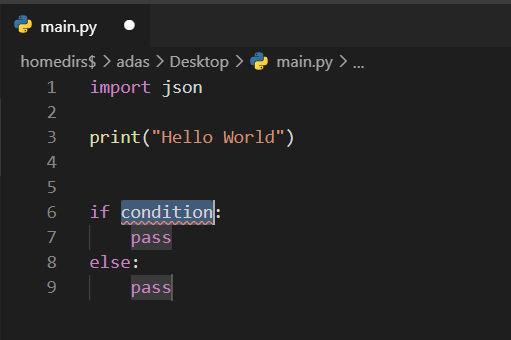

Import is the standard Python instruction for including other code into the current source file, usually with the form from module import entity. will display: Hello, Giorgio! Including other files Now the Hello World example becomes: from mod_python import apacheĪnd is displayed at While the parameters are actually kept in the request object, you can specify them as required, named parameters: def say(req, name): py files, by changing the configuration to this: PythonHandler mod_python.publisher You can use a standard handler to simplify even more your. It's a bit strange that the Content-Type has to be specified on the request object, but there is no response object anyway: all interaction has to be performed on req. Our Hello World it's easy to write: from mod_python import apache Without it, the production setting is to display a blank, generic 500 Server Error. PythonDebug On activates a nice stack trace visualization in the browser, in case of runtime errors. The rest of the configuration means that in the directory /var/The hello.py file will be targeted, unless you use a standard handler. In Ubuntu, it's written in the /etc/apache2/mods-enabled/python.load file, where you can add the other lines. so file of the module: if you installed mod_python in a Linux distribution, this line should already be present (use the a2enmod command if it's not in the enabled/ directory). This configuration lines should made their way into your nf or in the other configuration files you have on your system: LoadModule python_module /usr/lib/apache2/modules/mod_python.so It is of course built only for Apache, and exposes its API in any case, it promises to be faster than CGI (who doesn't?) Apache configuration In the words of its homepage, mod_python is a mature but not dead project: it requires very little maintenance due to its stability. See the mod_python website for alternative ways of installation.
#Hello world in python in visual studio install
You can install it on Ubuntu with a single command: sudo apt-get install libapache2-mod-python Mod_python is an Apache module that bridges the Apache 2 httpd processes with the Python interpreter. Even when higher-level abstraction are introduced, we still have to know how the foundation of our house are made. We won't care a lot about the performance of various approaches or whether to adopt frameworks like Django: we are just getting started. However it does not count for the purpose of this article: producing our first dynamic page with Python. Python -m SimpleHTTPServer is a very handy command that sets up a server listening on a port (by default 8080) having as document root the current directory.


 0 kommentar(er)
0 kommentar(er)
